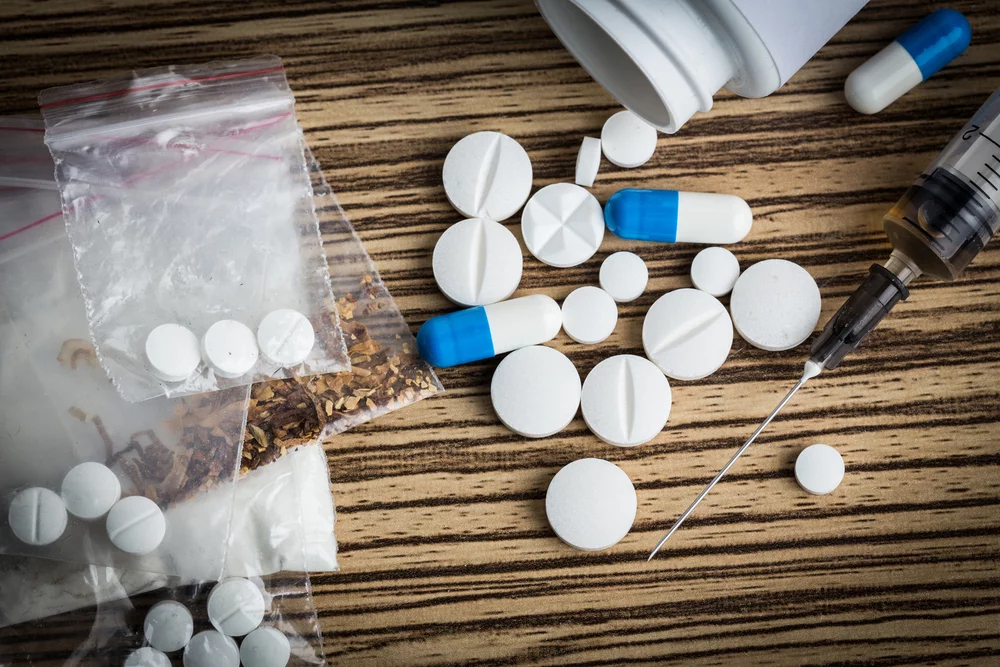Benzos can initially feel like miracle drugs for those suffering from anxiety, panic, and sleep disorders. However, these drugs are meant to be used in very specific ways in order to avoid side effects that could actually make these conditions worse—and lead to benzo addiction.
As more people seek treatment for anxiety and sleep disorders, prescription rates for benzodiazepines or “benzos” continue to rise at unprecedented rates. In the US alone, an estimated 12.5% of adults are using benzodiazepines to cope with stress, manage anxiety or seizure disorders, and improve sleep. However, long-term use of benzodiazepines can have a variety of problematic side effects, including an increasing tolerance, worsening of symptoms, and addiction. Understanding the impacts of these powerful prescription drugs is important in making informed decisions about their use, and knowing when to get help for a potential dependency.
What are Benzos and What are They Used For?
Benzodiazepines are a type of drug used as a sedative. They work by increasing the effects of a natural neurotransmitter called gamma aminobutyric acid (GABA) which reduces brain activity around reasoning, emotions, memory, and essential functions like breathing. This helps to relax muscles, induce a feeling of tranquility, and promote sleep.
Common Types of Benzos
Benzodiazepines are known by a variety of brand names, including:
- Valium (diazepam)
- Xanax (alprazolam)
- Ativan (lorazepam)
- Klonopin (clonazepam)
- Versed (midazolam)
- Dalmane (flurazepam)
- Restoril (temazepam)
In order to avoid the serious side effects from benzo use, including benzo addiction, doctors will often prescribe a short-term round of medications to address a medical condition, or advise patients to take periodic doses. For example, a patient with a panic disorder might take Xanax to stave off an impending panic attack, but wouldn’t take regular doses of the drug.
In fact, many medical experts recommend not using benzodiazepines for more than two weeks, as even three to four weeks of use may create a dependency that results in withdrawal symptoms when the person stops using them. Stopping use after an elongated period can also result in heightened sensitivity of the brain to natural brain chemicals, which can make previous symptoms of anxiety or insomnia even worse.
Ways to Avoid Misusing Benzos
In order to avoid serious and even life-threatening complications from benzo use, it’s extremely important to use them only if they are prescribed, and to take them only in the recommended dosage for the period of time prescribed. Other ways to avoid risks of misuse include:
- Asking your doctor before making any changes to the dose
- Letting your doctor know if you are taking any other medications, vitamins or supplements that could affect the prescription
- Never using benzos with alcohol or opioids
- Never taking benzos outside of a prescription, such as getting them from a friend or family member, or using them for recreational purposes
- Considering alternatives to a benzo prescription
While benzos can help people struggling with anxiety or sleep disorders, it is important to recognise they are potent drugs with potentially serious side effects, and to treat them with caution.
Signs of Benzo Addiction
Benzo addiction can develop quickly and a physical dependency may build without the user even being aware of it. Some signs that you may have formed a benzo addiction include:
- Going to other doctors or sources to get additional prescriptions or pills
- Changes in mood, feeling of numbness or emotional detachment
- Developing a tolerance; needing more of the drug in order to feel the same effects
- Muscle weakness
- Blurred vision
- Drowsiness, nodding off
- Mixing benzos with alcohol or other drugs
- Engaging in risky behaviours, such as driving after taking benzos
- Being unable to cut back on usage despite wanting to
- Experiencing symptoms of withdrawal when not using the drug
Long-Term Effects of Benzo Addiction
Over time, benzo addiction can have significant impacts on both physical and mental health, which can include:
- Sleeping difficulties, including worsened insomnia
- Lack of appetite and loss of weight
- Headaches
- Return of anxiety or worsening anxiety
- Muscle weakness
- Slowed mental processing or emotional numbness
Seeking professional support for benzo addiction can counteract these effects, and help you return to a healthy, balanced lifestyle.
How to Treat Benzo Addiction
Medically-assisted detox for benzo withdrawal symptoms
If you think you may have developed a benzo addiction, it is critical to seek professional help for recovery. This is because detoxing from benzos without medical supervision can be dangerous and even life-threatening due to the severity of the withdrawal symptoms, which may include:
- Heart palpitations
- Headaches
- Sweating
- Muscle pain and stiffness
- Increased tension
- Shaky hands
- Insomnia or other sleep disturbances
- Anxiety
- Panic attacks
- Hallucinations
- Seizures
- Suicidal ideation
- Psychosis
People who begin to detox from benzos may also find themselves dealing with “rebound anxiety” or “rebound insomnia”, which are conditions where the symptoms the benzos were suppressing return. These rebound effects usually peak at about 2-3 days into detox.
Choosing to detox with the assistance of medical staff can ensure that benzo withdrawal is safe and as comfortable as possible, creating a healthy space by which to continue your recovery.
Once a person has undergone medically-supervised detox from benzodiazepines, the next phases of treatment can begin. Successful treatment programmes will generally involve the use of several components such as talk therapy, lifestyle changes, and support groups to help rewire the brain away from addiction and towards new methods of coping with stress.
Cognitive behavioural therapy (CBT)
Cognitive behavioural therapy, or CBT, is an effective and widely-practiced method of therapy often used for those looking to overcome addiction. CBT identifies the root causes of addiction, explores problematic patterns of thought and behaviour, and elicits ways in which to constructively address and shift these patterns. As part of this method, clients and therapists also discuss and practice alternative, healthy coping mechanisms for managing stress and dealing with challenging situations to improve resilience and lower the risk of relapse.
Group therapy
Group therapy offers a unique and affirming experience to those in recovery. Surrounded by people with similar challenges and life experiences, participants benefit from informed support, knowledge, and advice from their peers and a skilled, compassionate facilitator. Here, participants can come together to begin to understand their interactions with others, and practice new ways to interact in order to more fully connect with other people and to feel better about themselves.
This setting also allows participants a glimpse into different stages of recovery, helping to broaden a sense of what life outside of addiction is like.
Healthy lifestyle changes
From yoga to jogging to mindfulness meditation, wellness practices help to strengthen the body and provide a healthy outlet for stress and tension. As those in recovery seek to expand their coping mechanisms past substance dependency, engaging in different types of wellness practices helps to find new ways of relaxation and natural methods of boosting mood.
Particularly for those struggling with sleep difficulties, lifestyle changes will include the development of good sleep hygiene. This means sticking to a regular sleep schedule, creating a sleep-positive environment that is cool, dark and quiet, avoiding screens and caffeine before bed, and other practices that help foster healthy sleep.
Moving Beyond Benzo Addiction at The Dawn Rehab Thailand

At The Dawn Wellness Centre and Rehab Thailand, our compassionate team of professional addiction specialists have spent years guiding people through successful, lasting recoveries. We understand that benzo addiction affects a person in many different ways, and so our holistic, residential treatment approach combines the most effective psychotherapeutic techniques with a variety of proven wellness practices to heal both the mind and body.
Benzo Addiction Treatment in Thailand
Internationally accredited by the American Accreditation Commission International, and nationally licensed by the Thai Ministry of Health, The Dawn offers a programme of comprehensive benzo addiction treatment in Thailand, as well as co-occurring disorders. Located in gorgeous northern Thailand, our peaceful riverside facility offers a wide range of amenities to help you relax, recharge, and heal. Far away from the triggers and stressors of home, you’ll be able to fully focus on your recovery at The Dawn.
24-hour Medical Support and On-site Detox
The Dawn offers on-site, medically-assisted drug detox in Thailand for our clients. Our round-the-clock on-site professional nursing team carefully monitors clients throughout this process under the supervision of our psychiatrist, who can prescribe medication as necessary to ease withdrawal symptoms. For emergency cases, clients will be immediately admitted to a nearby hospital for further treatment and support.
Options for Long-Term Rehab in Thailand
Clients who choose The Dawn may opt to participate in long-term rehab that focuses on in-depth mental health treatment and further guidance through the continuum of care. This includes detox, addiction and mental health treatment, a step-down programme, and aftercare support . Instead of spending four weeks in treatment and then heading home, this rehab model is generally eight weeks, and is flexible, all-inclusive and can be extended based on the unique needs of the client.
Call The Dawn today to learn more about how we can help you overcome benzo addiction and manage any co-occurring disorders for a healthier, happier life.
Related Posts
 Medical Detox: An In-Depth Guide
Deciding you have an alcohol or drug addiction and considering a medical detox is the first step towards taking your life back. The idea of quitting can feel overwhelming for...
Medical Detox: An In-Depth Guide
Deciding you have an alcohol or drug addiction and considering a medical detox is the first step towards taking your life back. The idea of quitting can feel overwhelming for...
 Too Much to Take: Warning Signs of Drug Overdose
The possibility of overdose is a harsh reality for those dealing with drug addiction. Knowing the specific signs of an opioid, benzo, alcohol, or stimulant overdose can save a life....
Too Much to Take: Warning Signs of Drug Overdose
The possibility of overdose is a harsh reality for those dealing with drug addiction. Knowing the specific signs of an opioid, benzo, alcohol, or stimulant overdose can save a life....
 The Process of Heroin Detox : What You Should Know About Heroin Detoxification, Withdrawal and Treatment
Starting the healing process after heroin abuse requires the elimination of heroin in the body through a process called detoxification, or detox for short. This initial step in the treatment...
The Process of Heroin Detox : What You Should Know About Heroin Detoxification, Withdrawal and Treatment
Starting the healing process after heroin abuse requires the elimination of heroin in the body through a process called detoxification, or detox for short. This initial step in the treatment...
 What You Need to Know About Opioid Withdrawal Symptoms, Detox and Treatment
Opioid addiction is becoming a global problem and is currently the primary cause of drug overdose in the U.S. Opioids such as morphine and codeine are synthetic drugs that cause the...
What You Need to Know About Opioid Withdrawal Symptoms, Detox and Treatment
Opioid addiction is becoming a global problem and is currently the primary cause of drug overdose in the U.S. Opioids such as morphine and codeine are synthetic drugs that cause the...





